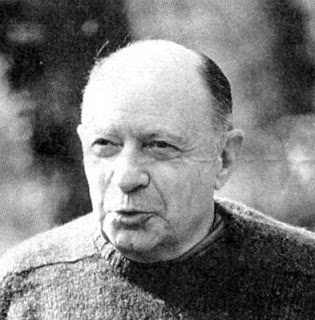“Christian anarchist” Jacques Ellul (1912-1994)
The chief flaw that I noticed in Jacques Ellul’s Propaganda was that Ellul does not use the word propaganda with a single consistent definition. I have coined the term counter-propaganda to designate one of the activities that Ellul, violating the definition with which he started, lumps in with propaganda. We as dissidents do not have the resources to make propaganda as Ellul defines it, but we certainly have the resources to make counter-propaganda.
My lesson from the book is as follows.
(1) Only a state or a quasi-state possessing mass-media can engage in modern propaganda, which involves the use of mass-media and educational systems to immerse the public in a particular way of looking at the world; therefore it is misleading to refer to a leaflet distribution as propaganda; at best this is counter-propaganda, an attempt to awaken doubts about the propaganda which is pervasive.
(2) Since the first mission of counter-propaganda is to create skepticism toward propaganda, counter-propaganda can be much less expensive than propaganda, but to maximize effectiveness it has to be directed toward people who are capable of skepticism, toward the thinking minority and toward people whose experience tells them that they have been ill-served by the establishment and its propaganda, or people (like farmers and truckers, Robert Mathews’ favorite demographic when he was still strictly legal) who spend much of their lives away from social pressures, or whose daily lives provide experiences that contradict equality propaganda as a matter of course (like veterinarians and police).
The most obvious form of counter-propaganda is media criticism. Historical revisionism is another form of counter-propaganda. Actions such as public marches can also be effective, on a less rational level, insofar as they shatter the illusion of unanimity and set an example of nonconformity.
Ellul mentions rather late in the book that winning people over is not always the immediate goal of (counter) propaganda; often the goal is simply to soften the pre-existing convictions. As blatantly false and unpleasant in application as the doctrine of racial equality is, if we can simply punch holes in the wall of fear about questioning it, we will have made an effective counter-propaganda, because perception and cognition will gradually accomplish the rest. The fact that someone makes an overt expression of racism and forces the system and the public to tolerate it, is already a victory that puts the system into a defensive posture.
Don’t measure the effectiveness of counter-propaganda in terms of recruits; rather take note of a more subtle and widespread effect, the increased willingness of the public that has been exposed to your position to regard it as worthy of discussion.
There is reason for hope in Ellul’s book: as he describes the power of propaganda he also describes its vulnerability. Propaganda’s main vulnerability is that it cannot tolerate contradiction. So get busy and make your voice heard!
